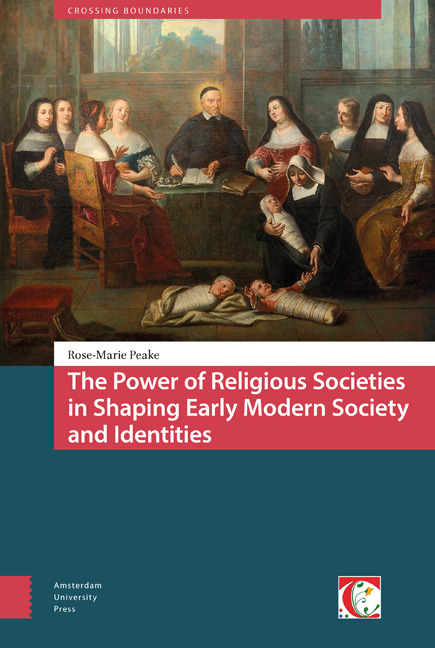Book contents
- Forntmatter
- Contents
- Acknowledgements
- Three Worlds, Three Portraits: Introduction
- 1 At the Cradle: Gender and Power in Seventeenth-century Parisian Society
- 2 Portrait of Louise de Marillac: Ensuring Resources for Moral Management
- 3 Portrait of the Daughter of Charity: Safeguarding the Execution of Moral Management
- 4 Portrait of the Underprivileged: Managing the Ignorant Substitute of Christ
- From Conservative Moral Management to Survival: Conclusions
- Sources
- Note on Vocabulary
- Index
4 - Portrait of the Underprivileged: Managing the Ignorant Substitute of Christ
Published online by Cambridge University Press: 21 November 2020
- Forntmatter
- Contents
- Acknowledgements
- Three Worlds, Three Portraits: Introduction
- 1 At the Cradle: Gender and Power in Seventeenth-century Parisian Society
- 2 Portrait of Louise de Marillac: Ensuring Resources for Moral Management
- 3 Portrait of the Daughter of Charity: Safeguarding the Execution of Moral Management
- 4 Portrait of the Underprivileged: Managing the Ignorant Substitute of Christ
- From Conservative Moral Management to Survival: Conclusions
- Sources
- Note on Vocabulary
- Index
Summary
Abstract
The fourth chapter tackles the means and contents of moral management aimed at the poor the Company of the Daughters of Charity helped. Focusing on the ideas and attitudes of the Company toward their benefactors, the chapter examines prejudice and love as motives in charity work and argues for the prevalence of the latter. Furthermore, the chapter discusses the contents of this moral management and finds that only a certain group of people were helped, the so called deserving poor, who were educated to become chaste and working members of society. This was not only in line with contemporary thinking of social order, but also part of the survival strategy that separated the order from erudite cloistered orders.
Keywords: poor relief; social inequality; social order; saintly poverty; lower strata of society; education
[Sister Marie Lullen] had great charity toward the little children she was in charge of instructing. […] I saw her kissing their feet a couple of times, saying that she thought she was kissing the feet of infant Jesus.
[…]
[Sister Barbe Angibouste] had a great affection for children and said that she saw little Jesus in them. She never complained about the trouble she went through for them and even held them in her arms in the night if there was no cradle.
The previous chapters have analysed the organizational backgrounds and ideals attached to what it was to be a good Catholic inside the Company of the Daughters of Charity. It is now time to turn to the most explicit target group of moral management: the poor who were the raison d’être of the Company. It was dedicated to their loving care as is visible in the memoirs of virtuous sisters quoted above. Susan Dinan and Elizabeth Rapley have discussed extensively the contents of the teaching and orphanage service provided by the Daughters of Charity and other teaching congregations of the century. This chapter will, thus, mainly focus on the ideological level and attitudes of the Daughters of Charity toward the poor and connect it to wider contemporary ideas of social order. It asks, what was good Catholic life like in the margins of society? What were the motives for the work and, thus, what kinds of attitudes did the Company attach to the target group of their benevolence and why?
- Type
- Chapter
- Information
- Publisher: Amsterdam University PressPrint publication year: 2020

